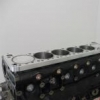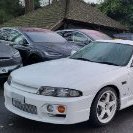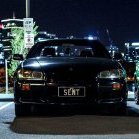Arp Main Studs... At What Point Should They Be Needed?
Announcements
-
Similar Content
-
Latest Posts
-
Yeah pretty impressive hey, good to see quality products not over-shooting their prices. That's what drew me to buy the hypergear turbo, just a shame I've never got the chance to see it in action
-
By Julsmadrid · Posted
Thank you GTSBoy and MBS206 I have done the compression test with the motor out of the vehicle, reason for the test was to see if I needed to remove the head and do rings etc while its out. I'm in the process of respraying the vehicle and tidying up a few things. Story behind it all is I've just purchased the skyline and it was running when I got it, never drove it on the street though as I wanted to pull it down and do it all up again before registering it. the gentleman I purchased it from told me the motor has a forged bottom end and has a decent tune through it but I was going to pull the sump off anyway to see if it is a forged bottom end. that's why I thought id do a compression test beforehand. -
By soviet_merlin · Posted
Man, I'm kind of amazed that the price of the turbo has not changed in 7 years. Everything else is inflating beyond reason, but not this? Good on Tao / hypergear I guess? Anyways, good luck with the sale! -
I'm selling my brand new, in the box, never used Hypergear ATR45 - and I had some additions I paid for a few yrs back when I purchased it. Never ended up having the rest of the money to add all the mods at once, so I just ended up slowly selling each part. I originally had it internally gated, with the dump pipe, however I found it was incompatible with what I was going to use it for, so I contacted (I think Ken) from Hypergear, and he and I messaged back and forth & he got me to ship the turbo back, where they modified it & made it externally gated, and gave me the 5 bolt dump pipe attachment for custom welding. (Photos below) This turbo like I said has never touched the inside of an engine bay, it's completely brand new, never used, been sitting in the same box it arrived in, covered in plastic & all. Below are the photos of it: And while the guys at Hypergear were making it in-shop, they sent me some photos of the process: I'm looking at selling this just because I'm in need of the money right now, and don't have plans on modifying the 34 anytime soon - and from reviews & peformance sheets, this turbo had amazing results back when I was researching. The turbo was purchased in 2018 for $1.9k, with the mods I got added on. Looking at the website now, for the same turbo they sell (ATR45SAT), with the current addons it adds up to $1830 for the turbo Current addons included: - Bolted dump adaptor - Ball bearing CHRA - Braided oil feeding line So I'm looking to possibly sell it for around $1800, with shipping included in that 1.8k, It cost me around $120 to ship - so yeah thought I'd throw it out there and see if anyone was interested in purchasing. Cheers!
-








Recommended Posts
Create an account or sign in to comment
You need to be a member in order to leave a comment
Create an account
Sign up for a new account in our community. It's easy!
Register a new accountSign in
Already have an account? Sign in here.
Sign In Now